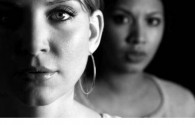
Theme
Mental health and wellbeing
This theme explores the issues surrounding mental health and wellbeing for women who are homeless or at risk of homelessness, and is being led by Expert Group member Sophie Corlett, Director of External Relations at Mind. Read the theme round up here.
In her blog, Sophie writes: “The link between mental health and homelessness is reciprocal. Women with mental health problems are more vulnerable to becoming homeless and being homeless can exacerbate or lead to poor mental health.
“For these reasons, mental health and wellbeing has been chosen as one of the themes of the Rebuilding Shattered Lives campaign, and I am delighted to come on board as the Expert Group lead for this theme.
“Looking in detail at this area will allow us to find answers to some important questions. Does stigma affect women and men in the same way? Do women who are homeless and facing mental health problems need different services to men? How do we get the right help at the right time to women at risk of homelessness?”
How do we make sure women get the right help, at the right time? We want to hear from practitioners on the ground and from women using services themselves, about what works and what support is missing, in particular:
In particular, we want to hear about:
• Specialist mental health or wellbeing services for women
• Self harm and eating disorder support services
• Partnerships between mental health and homelessness services that are working well for women
• Move on options and support in the community for women with mental health issues
• Provision for women whose mental wellbeing is affected by domestic violence, prostitution and separation from children
Please also submit any relevant research so we can gather this together to improve the support out there for women.
If you have already joined the campaign, please log in to submit evidence. If you are not already a member, please click here to register. Send us your contributions on this theme by 30 June 2013.
Theme started on: 13 May 2013
21 Submissions
The topic ‘Mental health and wellbeing’ is closed to new replies.



